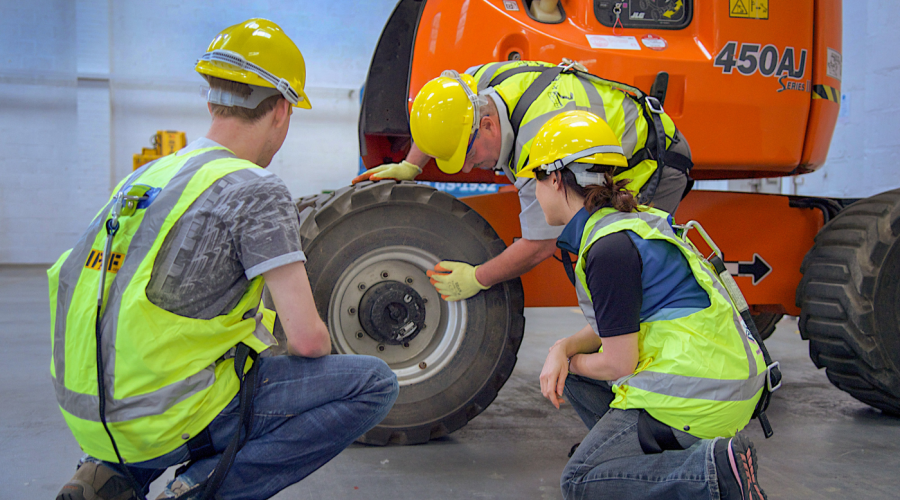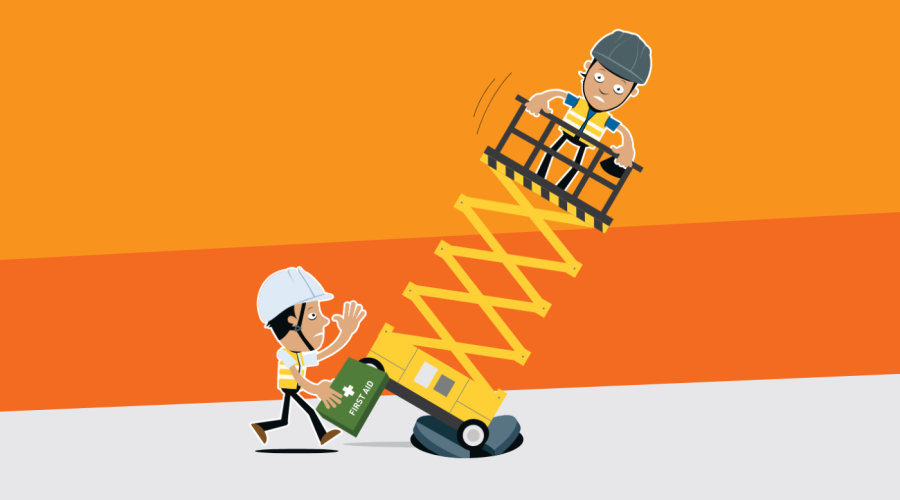IPAF Updates Service, Inspection and Maintenance of MEWPs Leaflet in 10 Languages

The International Powered Access Federation (IPAF) is pleased to announce the release of its updated leaflet on the service, inspection, and maintenance of Mobile Elevating Work Platforms (MEWPs). This comprehensive leaflet has been updated to reflect the current industry landscape and is now available in ten languages: English, French, German, Italian, Korean, Chinese simplified, Portuguese, Spanish, Turkish, and Dutch.
Brian Parker, IPAF’s Head of Safety and Technical, states, “We emphasise three crucial elements to ensure the safe operation of Mobile Elevating Work Platforms (MEWPs): conducting pre-use checks, adhering to servicing and maintenance as per Original Equipment Manufacturer (OEM) recommendations, and ensuring periodic inspections / examinations are carried out by competent personnel. Our updated leaflet is now tailored to meet the needs of our global audience.”
Ensuring the Safe Working Condition of MEWPs
Mobile Elevating Work Platforms (MEWPs) are among the safest methods for performing temporary work at height. To maintain their safety and efficiency throughout their operational life, it is crucial to keep MEWPs in optimal working condition. This can be achieved through a threefold approach: pre-use inspections, scheduled servicing and maintenance, and periodic inspections. Each of these elements is distinct but interconnected, contributing to the overall safety and functionality of MEWPs.
Key Components of MEWP Safety:
- Pre-Use Inspections: Conducted by a competent operator, these inspections ensure the MEWP is safe to use before each operation.
- Scheduled Servicing and Maintenance: Regular servicing as specified by the OEM is essential. This includes checking hydraulic and electrical components, conducting tests, and performing necessary measurements.
- Periodic Inspections: Authorised service engineers or technicians carry out these inspections to examine critical components. The frequency of these inspections depends on OEM guidelines and regional standards or regulations.
Understanding the differences between these elements is vital for maintaining MEWP safety:
- Pre-Use Inspections: Conducted by a competent MEWP operator before use.
- Service and Maintenance: Regular servicing by a competent person, including checks of hydraulic and electrical components.
- Periodic Inspections: In-depth inspections by authorised engineers/technicians at intervals specified by the OEM and regional standards.
Ensuring Safe Operation
A comparison between ensuring the safety of a car and a MEWP highlights the importance of each safety measure:
- Pre-Use Checks: Just as drivers check their cars before driving, MEWP operators perform visual and functional checks before use.
- Regular Inspections and Maintenance: Similar to car maintenance by qualified staff, MEWPs require regular inspections and maintenance to stay in good working order.
- Government Approved Testing Centres: Just as cars undergo government-approved tests, MEWPs need thorough, impartial examinations by competent persons to ensure continued safety.
Resources:
- IPAF MEWP Pre-Use Inspection Checklist
- IPAF Andy Access: Pre-Use Inspection
- IPAF Andy Access (Video): Pre-Use Inspection
- IPAF Guidance for Second Party Inspection Bodies
- IPAF Managing the Safe Condition of Mobile Elevating Work Platforms
For more detailed guidance, download the complete leaflet at: www.ipaf.org/guidance.
